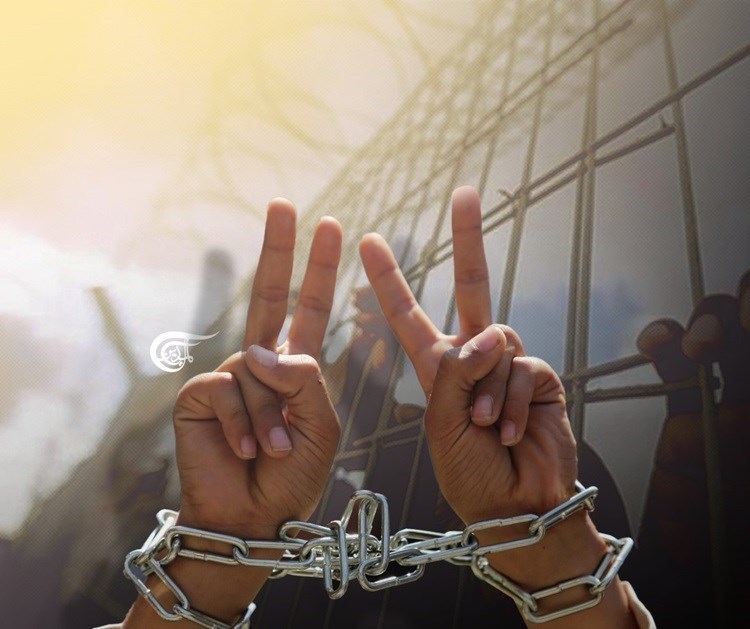The Administrative Prisoners Committee in Israeli occupation prisons says batches of prisoners will participate in a hunger strike, which will amount to an open collective strike.
The Administrative Prisoners Committee in Israeli occupation prisons denounced the prisoners’ exposure to the worst forms of continuous injustice through arbitrary administrative detention procedures.
In a statement, the Committee highlighted that the number of administrative prisoners is nearly 1,300, which is almost a quarter of the Captive Movement prisoners.
The Committee underlined that all practices against administrative prisoners are carried out by orders of the Shin Bet, with flimsy pretexts and justifications and false hypothetical accusations.
Within the framework of protests and escalation, the Committee indicated that batches of prisoners will participate in a hunger strike, which will amount to an open collective strike, which includes returning meals, ending dealing with the medical clinic, and refraining from consuming medicine, leading to disobedience and rebellion, the statement explained.
The Committee confirmed the continuation of the open battle against administrative detention “to end the state of pain and continuous bleeding.”
In the same context, the Palestinian Commission for Detainees and Ex-Detainees Affairs announced that the number of prisoners on hunger strike has increased to 13, in protest of their arbitrary administrative detention, after the two prisoners, Saif Hamdan and Saleh Rabaya, joined the strike.
The Commission’s lawyer, Moataz Shqairat, revealed after his visit to Nafha prison that prisoner Saif Hamdan (29 years), from the city of Nablus, began his hunger strike in late July, in protest against the extension of his administrative detention, as he was arrested in October 2022. After the end of the first administrative detention extension period, the Israeli occupation extended Hamdan’s detention for another four months.
Shqairat added that prisoner Saleh Rabaya (22 years), from Jenin, who was arrested in August, joined the rest of his fellow prisoners on strike at the end of last July, in protest against the extension of their administrative detention. The Israeli occupation extended Hamdan’s detention for another three months and issued another three-month extension decision against the prisoner.
As a form of psychological pressure, the Israeli occupation prison administration confiscated all the Palestinian prisoners’ needs and clothes and only gave them brushes twice in 14 days, when a delegation of the International Committee of the Red Cross visited them.
The occupation resorts to the policy of administrative detention, as a form of psychological torture and pressure against the prisoners. Trial sessions in administrative detention are held in a non-public manner, thus depriving prisoners of their right to a public trial.
Two days ago, the Undersecretary of the Commission for Detainees and Ex-Detainees Affairs, Abdelkader Al-Khatib, confirmed that the situation inside the occupation prisons is very dangerous, especially in light of the high number of administrative prisoners who are on hunger strike.
Al-Khatib expected that the coming days would witness action and solidarity activities with the prisoners on hunger strike to put pressure on the Israeli occupation.
Read more: Palestinian prisoners united in occupation face: Detainees Commission
This post was originally published on this site be sure to check out more of their content.







